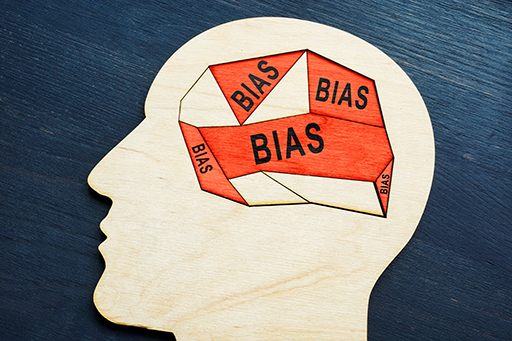3.2 Attributions about behaviour: the fundamental attribution error
As you discovered in the last section, there are theories in psychology that draw on assumptions about how much of what is thought of as our ‘personality’ comes from our fundamental disposition, and how much of it comes from the situations we find ourselves in. Psychologists take an interest in our thought processes, as well as our behaviour, and in researching this have noticed a number of ways in which our thinking can be less than perfect and can be biased. One such bias that is important when considering how we understand other people is that we tend to view our own behaviour as being determined by our circumstances, or the situations we find ourselves in (e.g. I was late for work because I was stuck in traffic) but we tend to assume the behaviour of other people is in some way down to who they are, or their disposition (e.g. you were late for work because you are disorganised and set off too late).
The tendency to make this error is called the ‘fundamental attribution error’ (Ross, 1977). As you will discover in later weeks of this course, this error is just one of the ways in which human thinking can result in biased interpretation of what we observe about others.
Think back to your answers to Activity 4. Did you provide a situational answer (answers 1 and 3) to the first two questions that asked about your own actions, and a dispositional answer (answers 2 and 4) to the last two questions that asked you about the actions of someone else? If so, your answers demonstrated the ‘fundamental attribution error’, because you saw your own actions as resulting from situational factors and the actions of others being caused by dispositional factors. If you did, don’t worry, this is a really common bias in human thinking, hence the name ‘fundamental’.

